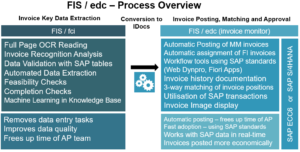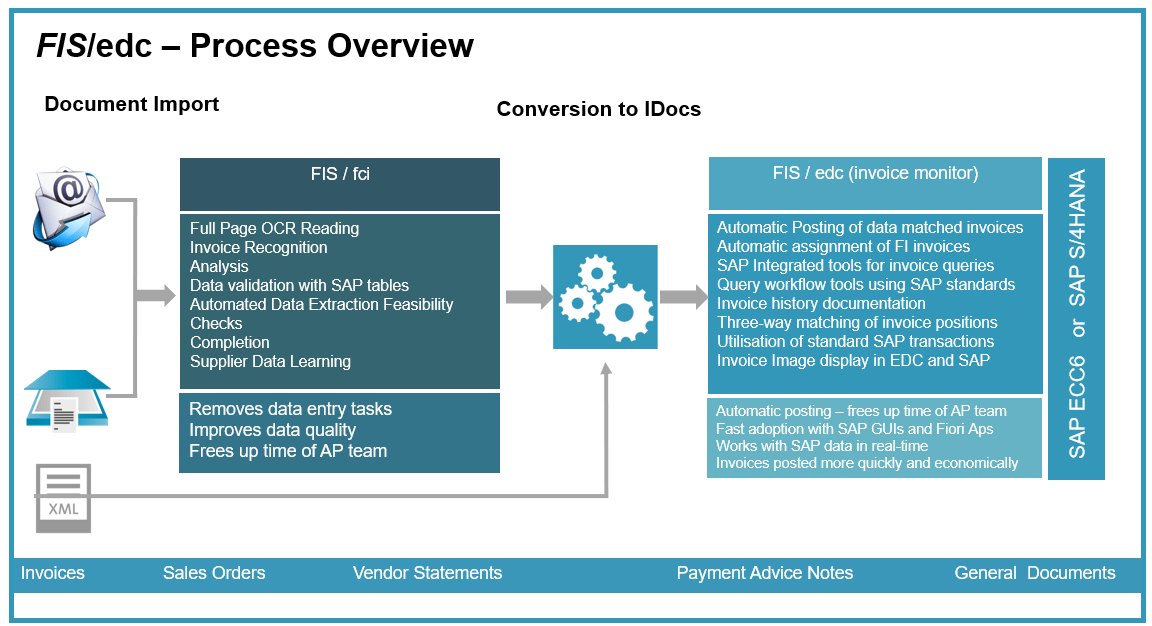OCR invoice data collection technologies and functionality
Advanced technologies work together ensuring that invoice data is collected automatically and accurately. The invoice reader uses validation and viability checks prior to the data export to SAP or Financials.
Introduction
The video highlights some of the advanced technologies that are applied to the task of automated invoice data collection.
The technologies ensure that invoices are correctly classified and the data quality is maintained, prior to transfer to SAP / ERP.
The technologies significantly reduce the workload of the accounts payable team.
Who is it for?
For organisations with SAP ERP (ECC 6 or S/4 HANA) who wish to:
- Replace time consuming tasks such as manual data-entry when processing invoices
- Improve the invoice data quality in SAP by utilising tables from SAP for company code identification, PO validation, current tax values, and supplier identification
- Make savings by reducing invoice processing costs, making a significant improvement in data quality
- Reduce the workload for the accounts payable team
- Reduce the payment times for vendors by processing invoices in a timely manner
Key Information:

Emailed invoices are automatically forwarded to FIS / fci (the invoice data collection component) and then archived for retrieval in SAP / ERP. Therefore, no need for manual tasks such as printing, scanning and keying-in invoice data
Multiple OCR engines are employed. The data from all engines is compared to support data quality.
Invoice classification is confirmed against standard tables in SAP / ERP to highlight potential errors in the invoice data.
"Fuzzy logic" is used for comparing invoice data (i.e. supplier recognition) with reference data to compensate for inexact data on the invoice or within the SAP master data.
Freeform recognition technology automatically searches for data in the vicinity of keywords to collect the key invoice data from day-one.
Machine learning. An intelligent knowledge base is used to collect the key invoice data. The knowledge-base uses machine learning by analysing the co-ordinates of previous successfully read invoices from each supplier.
Machine Learning applied to invoice processingReplacing manual data-entry H&S Document Archive for SAP Invoice data extraction as a service - Document OptionsFinancial savings with FIS / edcCombining OCR and SAP Integrated Invoice ProcessingOCR - Invoice Reading FAQs Invoice Processing with SAP - FAQs


